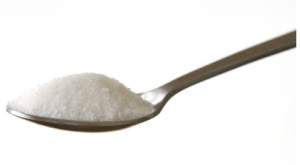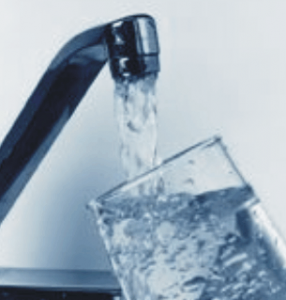25 Apr Creatine – Should You Be Taking It?
Creatine, should you or shouldn’t you?
For years, the guys have been taking creatine trying to ‘bulk up’ and get the most out of their workouts. But is there something there with creatine for women? Is there a benefit to taking creatine or it just hype?
First of all, what exactly is Creatine?
Creatine is a naturally occurring amino acid found mostly in skeletal muscle. Creatine can be found in meat, fish, or taken in supplement form. Creatine can also be made by the human body in the liver, kidneys and pancreas from the amino acids L-arginine, glycine, and L-methionine.
 What does Creatine do?
What does Creatine do?
The body converts it to creatine phosphate where it’s stored in our muscles and used for energy during high intensity, short duration workouts. Good examples would be short explosive sprints, or high-weight, low-repetition lifts of 1-3 reps.
Creatine also helps pull water into the muscles which gives them a bit more volume, which is why the guys loved it. It allowed them to put on a few pounds and increase their max lifts.
Should I be taking a creatine supplement?
Americans are spending big $$$ on creatine supplementation as it MAY increase lean muscle mass and improve athletic performance during high intensity, short burst power workouts such as sprinting, weight lifting, high jumping, or sports like football or baseball with bursts of explosive energy.
The benefits of creatine on long duration or endurance events isn’t as clear. Because of the way creatine works in the body, you may or may not get results by doing mostly endurance or cardio work. If you are not hitting the gym hard and really pushing things with the weights, it’s likely that you will only put on water weight due to the increased water pulled into the muscles. Everyone responds differently to creatine supplementation differently, so you would have to see how it works for you individually.
Should endurance athletes take it?
Various studies agree that endurance athletes like runners and cyclists do NOT benefit from creatine. This is possibly due to the “weight gain” or muscle mass that is acquired. During endurance athletics, creatine is NOT used as energy and is stored as mass only which seems to slow the athletes down.
How do you take it? Creatine comes in many forms but the most effective seems to be powdered when mixed and consumed with fruit juice. Why juice? Well, the juice raises the body’s insulin level which which helps increase creatine uptake into the muscle. Creatine supplementation can be taken in cycles or continuously, and there are opinions on both. Play with it, and see what works best for you.
When do you take it? This is a popular question with experts agreeing on one thing, it should be taken as close to your workout as possible, either before or after. However, the consensus that supplementing with creatine after you work out is preferable to doing so before because your muscles work very hard while you’re exercising, so your creatine levels will be depleted after a workout. Body building enthusiasts often take both before and after.
 Will taking creatine make you BIGGER? You will definitely gain weight from creatine, usually 2-4 pounds of water weight within the first week of supplementation. Is this a good thing? You decide 🙂
Will taking creatine make you BIGGER? You will definitely gain weight from creatine, usually 2-4 pounds of water weight within the first week of supplementation. Is this a good thing? You decide 🙂
What are the risks associated with creatine?
Weight gain, dizziness, nausea, muscle cramps, muscle strains and pulls, diarrhea, high blood pressure, liver and even possible kidney damage. Taking creatine supplementation can also stop your body from making its own natural creatine supply.
A common risk- Dehydration- As your muscles absorb the water, your body has less fluid to use for important functions, such as regulating body temperature through your sweat and may cause dehydration. Some of the creatine supplements/drinks on the market include caffeine, but caffeine and creatine should NOT be used  together as caffeine prevents the body from using creatine effectively and increases your risk of dehydration.
together as caffeine prevents the body from using creatine effectively and increases your risk of dehydration.
The FDA- Creatine like many other supplements are NOT regulated by the FDA (food & drug administration) and are NOT recommended for anyone UNDER the age of 20 years old- many of the creatine supplementation companies are marketing to student athletes, making claims that creatine can change their bodies WITHOUT working out. However, NO studies on the safety or effectiveness have been done on people under 20 years old.
Like all supplements, do your research and consult with your health care provider BEFORE taking creatine so that you can make the best decision for YOU!
 Excuses or Solutions…YOU Decide!
Excuses or Solutions…YOU Decide!
-Natalie Jill
Bloat, Fat, and Fatigue BE GONE! Give me 7 days to teach you the habits to get the weight off and change your life FOREVER! Start HERE
